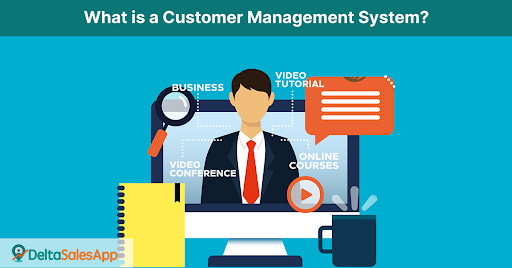What is a Customer Management System?

In the dynamic landscape of business, understanding and efficiently managing customer relationships is pivotal for success. This comprehensive article sheds light on "what is a customer management system, its features, benefits, what happens when you do not have customer management system, conclusion, and FAQs." Let's embark on a journey to unravel the significance of these systems in optimizing business operations.
A customer management system, often referred to as Customer Relationship Management (CRM), is a powerful tool designed to streamline and enhance interactions with existing and potential customers. It acts as a centralized hub, storing valuable customer information, interactions, and transactions. This facilitates seamless communication and empowers businesses to deliver personalized experiences.
Exploring the Features
-
Customer Data Centralization: Effective CRMs ensure that all customer data is consolidated in one accessible location. This streamlines processes, allowing teams to work cohesively and make data-driven decisions.
-
Interaction Tracking: CRMs track customer interactions, from emails to phone calls. This provides a holistic view of customer engagement, enabling businesses to tailor their approach based on individual preferences.
-
Automation for Efficiency: Modern CRMs offer automation features, reducing manual tasks. This not only boosts efficiency but also minimizes the risk of errors in customer-related processes.
-
Integration Capabilities: A robust CRM seamlessly integrates with other business tools, creating a unified ecosystem. This enhances collaboration across departments and ensures a cohesive customer experience
Unveiling the Benefits
-
Enhanced Customer Relationships: By having a 360-degree view of customer interactions, businesses can build stronger, more meaningful relationships. Personalized communication fosters loyalty and customer satisfaction.
-
Improved Decision-Making: Access to real-time data empowers businesses to make informed decisions. This agility is invaluable in a competitive market, allowing for quick adjustments based on customer trends.
-
Optimized Sales Processes: CRMs streamline the sales pipeline, automating repetitive tasks and providing insights into potential leads. This accelerates the sales cycle, contributing to increased revenue.
-
Increased Productivity: Automation and centralized data contribute to enhanced productivity. Teams can focus on strategic tasks, leaving routine operations to the CRM system.
Consequences of a Missing Customer Management System
-
Disjointed Customer Data: Without a CRM, customer data is scattered across various platforms, leading to inefficiencies and communication gaps.
-
Missed Opportunities: Lack of a centralized system may result in overlooked sales opportunities and hinder the ability to capitalize on customer needs.
-
Inefficient Marketing: Targeted marketing becomes challenging without a CRM's ability to analyze customer behavior and preferences.
Improved customer management with Delta Sales App’s CRM
Delta Sales CRM stands as a beacon of efficiency in the realm of sales life cycle management. This comprehensive software goes beyond the ordinary, offering a singular platform to seamlessly navigate the intricacies of lead management, customer relations, invoicing, and sales activities. It's a centralized hub that empowers businesses to not only organize and track leads effectively but also to nurture customer relationships, handle invoices with precision, and streamline sales activities effortlessly.
By consolidating these critical elements into one user-friendly interface, Delta Sales CRM becomes a catalyst for enhanced productivity, informed decision-making, and an accelerated sales cycle. It's the ultimate solution for businesses looking to simplify their sales processes and elevate their overall operational effectiveness.
Conclusion
In the fast-paced world of business, having a robust customer management system is no longer a luxury; it's a necessity. From enhancing customer relationships to optimizing internal processes, the benefits are undeniable. Don't let your business miss out on the competitive edge – embrace the power of CRM today.
FAQs: Answering Your Queries
Q: How does a CRM benefit small businesses?
A: CRMs level the playing field by providing small businesses with tools to compete effectively. They help in understanding customer needs, optimizing marketing efforts, and boosting overall efficiency.
Q: Can CRMs be customized for specific industries?
A: Absolutely. Many CRMs offer customization options to cater to the unique needs of different industries, ensuring they align with specific business processes.
Q: Is CRM implementation time-consuming?
A: The implementation time varies based on the complexity of the business and its processes. However, many modern CRMs are designed for quick and seamless integration.
Q: Are there free CRM options available?
A: Yes, several CRMs offer free versions with limited features. These are often suitable for small businesses or those exploring CRM benefits for the first time.
Q: How can a CRM improve customer retention?
A: By providing insights into customer preferences and behaviors, CRMs enable businesses to personalize interactions, anticipate needs, and proactively address concerns – all key elements in retaining customers.
Q: What are the security measures in place for CRM systems?
A: Leading CRM providers prioritize data security, employing encryption, access controls, and regular audits to ensure the protection of sensitive customer information.








